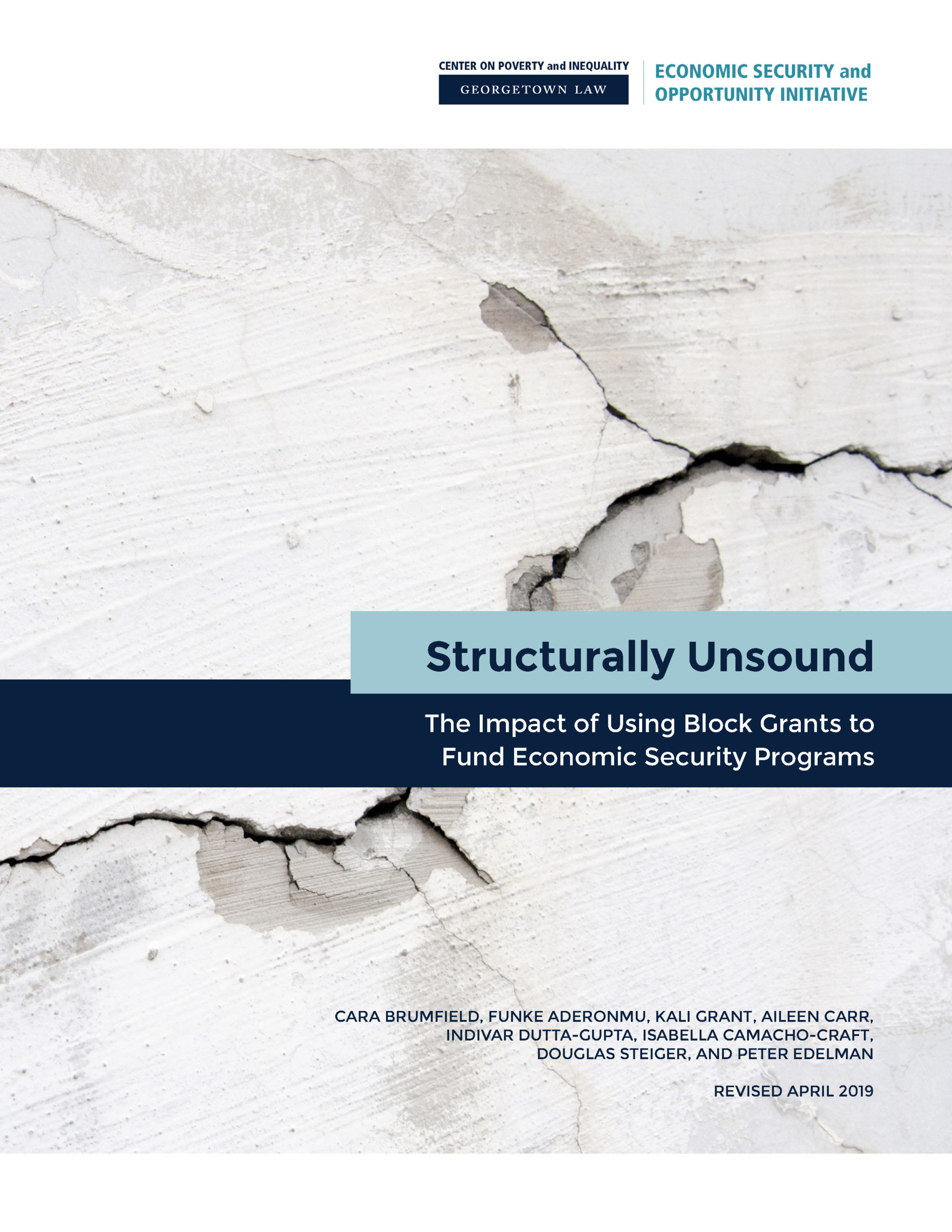This analysis finds that block grants (characterized by capped amounts of federal funding to states and other entities paired with expansive flexibility for how the funds are spent) are fundamentally ill-equipped to support basic living standards compared to other structures, especially those that meaningfully guarantee access to adequate benefits or services. Specifically, block grants struggle to respond to need, can be less accountable to program goals and to the people who participate in the program, and can exacerbate inequities—especially racial inequities.

